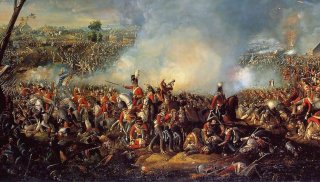Doomed At Waterloo: These Mistakes Caused Napoleon To Lose His Final Battle
The world of Napoleon, with its multiple great powers, shifting alliances, realpolitik, and need for battlefield skills more closely resembles the modern world than World War II or the Cold War.
Instead, Napoleon brought with him another general, Michel Ney, who commanded the left wing of the French army at Waterloo. Ney’s cavalry are thought to have erred in charging British soldiers too late, not using infantry or artillery support, and failing to render the British cannons inoperable. It seems odd that Napoleon, being an obsessive micromanager, could overlook this aspect of the battle.
The timing Napoleon chose for Waterloo is also thought to have been a major mistake. Instead of attacking British forces in the early morning, he waited several hours to commence the battle, reportedly breakfasting leisurely. He underestimated the skill of Wellington’s forces, despite knowing of their experience during the Peninsular War in Spain. He also underestimated how far away the Prussian forces of Gebhard Leberecht von Blücher were from Waterloo—these forces would arrive by the late afternoon. Had Napoleon attacked Wellington’s British forces earlier and finished them off—which was possible due to his initially superior numbers—he could have faced off against the smaller Prussian force and defeated them separately or used a British defeat to maneuver politically. However, the arrival of the Prussian force at Waterloo led to the tired French forces being decisively outnumbered and attacked on multiple sides.
Akhilesh Pillalamarri is an assistant editor at the National Interest. You can follow him on Twitter:@AkhiPill. This article is being republished due to reader interest.
Image: Wikipedia.

